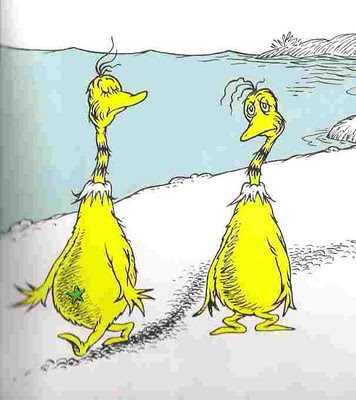
This year, I don't want you to go to the doctor.
That seems obvious. Most people go to the doctor when they are ill, and I don't want you to be ill or have an accident. But I don't want you go to the doctor even if you are well.
The reason is because it is not a good use of your money unless you are at risk. That concept is almost anathema in parts of culture today. Like 2015's Net Neutrality rending of garments recently(1), some people act as if the Affordable Care Act (nee Obamacare) was always with us and we are doomed to die without it. That's not the case. Instead, the evidence showed us it was never going to be the case. Starting in 1976, the Rand Corporation's Health Insurance Experiment, a randomized study of health insurance, decided to find out if nationalized health insurance might be the way to go. After 40 years they unsurprisingly know that, just as with food and televisions, the cheaper health care is the more people used it.
But that didn't correlate with better outcomes any more than streaming YouTube videos made poor kids do better in school. So much for the conspiracy theory that health care in America was expensive because doctors, drug companies, and hospitals get paid to solve medical problems and they can't do that if people are healthy.

Yes, some diseases have been caught earlier, but they likely would have been anyway so it remains a negative overall. It turns out that despite claims that doctors and hospitals and drug companies are the problem, someone still needs to spend time with patients to persuade them to change their behavior and become thin non-smokers who exercise. Those people are doctors and nurses and they still cost money, even if they spend less time seeing actual sick people because they are again telling someone to lay off the Doritos in a routine visit. In The Oregon Health Insurance Experiment, low-income residents who signed up for the state's Medicaid program were placed in a lottery. Yes, a lottery.(2) Scholars followed both groups and found that those who literally had to win the lottery to get health care in progressive Oregon did spend more on health care than those who remained uninsured. Maybe they felt lucky for winning Medicaid in Oregon and they used it but had no better health outcomes. There wasn't even less time off of work, which is often the secret sauce added to claims about health care when there is no definable economic benefit.
Others have even postulated that more long-term health savings could be gained if uninsured people were paid to go. Using cash incentives in a randomized controlled trial to get low-income uninsured adults to visit a doctor's office, in hopes physician's could catch any problems earlier and save health care costs over the long term, the authors found that while emergency department visits declined, overall cost did not. You can argue there are confounders, such as poor people more likely to smoke or that the duration was too short, but there are just not enough chronically sick people caught early to offset the cost of all the well ones going for no reason.
Preventive care is really only shown to work if it replaces existing care that is expensive and doesn’t help, so if we were giving people real medicine in place of naturopathy or chiropractors that would be fine. But that is partly why it does not save money. People who want homeopathy or acupuncture ot whatever don't consider those a waste of money. They instead want them covered by their insurance. Unless we go to the doctor less, and stop insisting we are denied access to stuff if other taxpayers won't subsidize it for us (3), Centers for Medicare and Medicaid Services (CMS) estimate that health care spending will rise from 16.2 percent of gross domestic product in 2008 to 19.6 percent by 2024.(4)
And the population won't be healthier.
NOTES:
(1) It used to be that you could determine someone's political party by listening to their beliefs on food, energy, medicine and chemicals. Now you can figure it out by how little they know regarding how the Internet actually worked before 2015.

(2) Apparently if you are a Sneetch without a star in Oregon, it's more like The Hunger Games than a Dr. Seuss story.

Credit: Dr. Seuss Enterprises
(3) Though it would be fun to argue with the Trustees at the American Council on Science and Health that unless they directly pay my mortgage, they have denied me access to paying my mortgage.
(4) Compare that to United Kingdom, where even entirely socialized medicine is still only 9.9 percent of their GDP.



